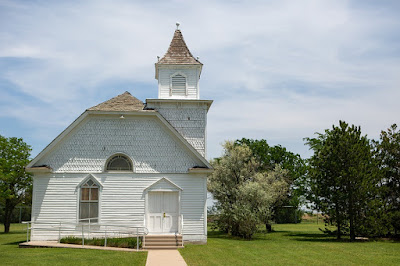Christmas: Not the Way We Would Have Done It, Lord!
God rarely does anything as we would have done it or expected it. In the 8th century B.C., God told Israel, “Your thoughts are not my thoughts, neither are your ways my ways. For as the heavens are higher than the earth, so are my ways higher than your ways and my thoughts than your thoughts” (Isaiah 55:8-9). So, when God got ready to put His earth-saving plan into effect, we may expect it to be different. Vastly different from how we would have done it. Read More
The 10 Christmas Commandments
Kyle and Matt discuss five things TO DO and five things NOT TO DO during Christmas at your church...let's just call 'em the 10 Christmas Commandments. Please note: The views expressed are the views of the one that expresses them, not necessarily both knuckleheads on the pod. Listen Now
Why the fuss about the three wise men? First the Bible does not specify how many magi, or wise men, visited the infant Jesus. Second, the Bible tells us that the magi did not visit the infant Jesus on the night that he was born but several months after his birth.Unadorned Clay Pots: The Best Gift for the Lonely at Christmas
Are you one of those people who make a list and stock Christmas gifts the whole year through? If not, you will probably spend the last few weeks before Christmas worrying about what present will please your relatives, particularly those you don’t know well because you don’t see them very often. Yet the best gift of all, the one that literally changes lives, is the simplest. And, like an expensive fragrance, its effects last for a long time. I’ll come back to this later. Read More
Religious California Town May Hold Lessons for Living Longer
People in the area live 8 to 10 years longer. Read More
Should Christians Be Vegan
Christians have not been prominent among the rapid growth in those moving towards a vegan diet in recent years, but David Clough argues they have strong faith-based reasons to reduce or eliminate animal products in their diet. Read More
Animals Targeted in ‘Occult’ Attacks in Hampshire
Occult symbols have been painted on a killed sheep and on the door of a church in a spate of attacks in the New Forest which are believed to be linked. A sheep and two cows have been attacked as well as well as Satanic symbols painted on the door of St Peter’s Church in Bramshaw, Hampshire. Read More
Preaching Interview: Matt Hensley [Podcast]
Matt Henslee sits down with Dr. Barry McCarty for an interview to discuss preaching in rural churches. Listen Now
Reaching a New Generation with the Bible
We can no longer depend on methods that worked 20 years ago. Read More
Four Suggestions for Making Your Way through the Old Testament
Josh Philpot offers four suggestions for making your way through the Old Testament. Read More
A Revolutionary Prayer Life
Somewhere near the top of the list of questions that send most conversations amongst Christians into a tailspin is this one: “So, how’s your prayer life?” Read More
45 Recipes Grandma Stole from Her Church Friends
You and your church may find these recipes from Taste of Home useful during the holiday season and throughout the year. Read More
Judea, Suburbia, to the Ends of the Earth
Suburban America is a strategic mission field. Read More
Door-to-Door with a Difference
Given that so few people in our communities engage with the Church or formal religion, it is surprising when we expend so much of our evangelistic efforts at ‘bringing them to us’. Do we put on gospel services regularly and just expect people to find their way into an alien building to partake in the strange ritual of a church service? Events in neutral buildings such as cafes or restaurants are easier for visitors to come to, but this still depends upon someone being invited. The issue is – how do we reach out to the unchurched, how do we undertake the equivalent of ‘cold calling’ in our day? Read More
Sharing Jesus with your Hindu Neighbour
Have you got Hindu neighbours or workmates? Would you like to share your faith with them but wonder where to start? Read on. You might be the only follower of Jesus your friend has ever met. If you don’t give it a try, maybe they won’t have another opportunity. Read More
Top Tips for Sharing Jesus with Muslims
Brother Silas, a missionary with the London City Mission has spent the last 30 years sharing Jesus with people from Muslim communities, both in the United Kingdom and the Middle East. Here are his top tips for beginning gospel conversations with Muslims. Read More
Sharing Jesus with your Sikh Neighbour
Mark Pickett offers ten tips for sharing Christ with Sikhs. Read More




























